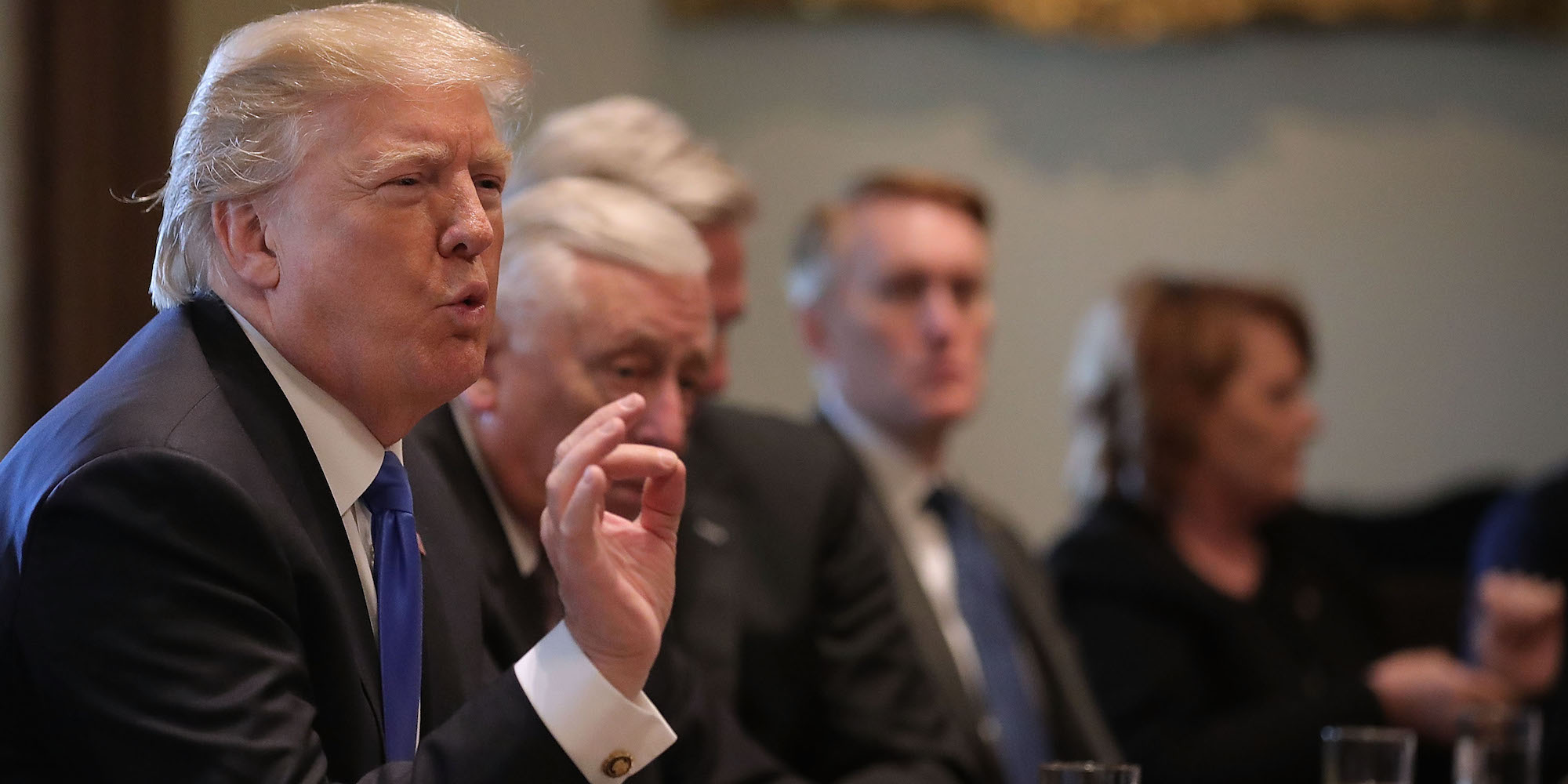- President Donald Trump told lawmakers that they should think about bringing back earmarks to help increase bipartisan cooperation.
- Earmarks are targeted funding for projects that were added to larger bills to win over lawmakers’ votes.
- As House speaker, John Boehner banned earmarks in 2010.
- Numerous lawmakers were not enthused by Trump’s suggestion.
President Donald Trump wants to bring back an old, much-derided practice in Congress, but many lawmakers were wary of the idea on Tuesday.
“Maybe all of you should start thinking about going back to a form of earmarks. You should do it,” Trump said during a White House meeting on immigration reform with members of both parties.
Earmarks are targeted funding for projects, typically in a member’s home state or district, that were used to help win over lawmakers to legislation they might not otherwise support. These provisions allowed members of Congress to point to specific victories for their constituents that they were able to secure as parts of larger bills.
While House speaker, John Boehner banned these carve-outs in 2010, saying the add-ons had “become synonymous with pork-barrel spending and corruption.”
Trump did suggest that any future version of earmarks needed to be monitored, but he said the special add-ons could be helpful in bolstering bipartisanship.
"We have to put better controls because it got a little out of hand, but that brings people together," Trump said.
Following the meeting, the White House press secretary, Sarah Huckabee Sanders, said the call to bring back earmarks was simply Trump's way of throwing out ideas on how to increase cooperation in Congress.
"We've gotten to a place where Democrats and Republicans are fighting more than they're fixing, and he wants to find different ways to bring more and more Democrats and Republicans to work together on legislation to move our country forward," Sanders said. "He threw that out as a suggestion on how to do that."
Lawmakers are skeptical
The idea of bringing back earmarks was met with a lukewarm reaction from Rep. Diane Black, the Republican chair of the House Budget Committee, which oversees much of the government's funding.
"Obviously there was a time where we didn't think it was necessary - it was before I got here," said Black, who took office in 2011. "In particular we always hear about that road to nowhere. So I would be very interested to see why people believe that that is so, and I think there's an argument that can be made."
Rep. Mark Meadows, the chair of the conservative House Freedom Caucus, was more blunt about Trump's suggestion. Meadows said that earmarks were simply "a way to spend more and to dole out special political favors" and that allowing the practice was an avenue for corruption.
"I haven't seen any plan that is so transparent that it is not corruptible at this point," Meadows told Business Insider. "So I represent 750,000 people, and so if they want to put out a plan that I can take to them, I'm more than happy to look at it. But at this point, I don't know of anything that actually would not be abused by this institution."
Other lawmakers were more open to the idea, which could give them more flexibility on spending bills.
"There's really an interest in both parties to reclaim these powers back to Congress," GOP Rep. Tom Cole of Oklahoma told Politico. "There were clearly problems with the old system. Someone went to jail. There's a case to be made against them, but I think in the end, the case for them is more powerful."
The suggestion also faced pushback from a variety of outside groups, including the conservative Club for Growth.
"If Republicans bring back earmarks, then it virtually guarantees that they will lose the House," David McIntosh, the Club for Growth CEO, said in a statement. "Bringing back earmarks is the antithesis of draining the swamp. Earmarks will only benefit the special interests that grow government at the expense of working men and women."
The chair of the House Rules Committee, Rep. Pete Sessions, said he planned to hold hearings on possibly bringing back earmarks starting next week.
